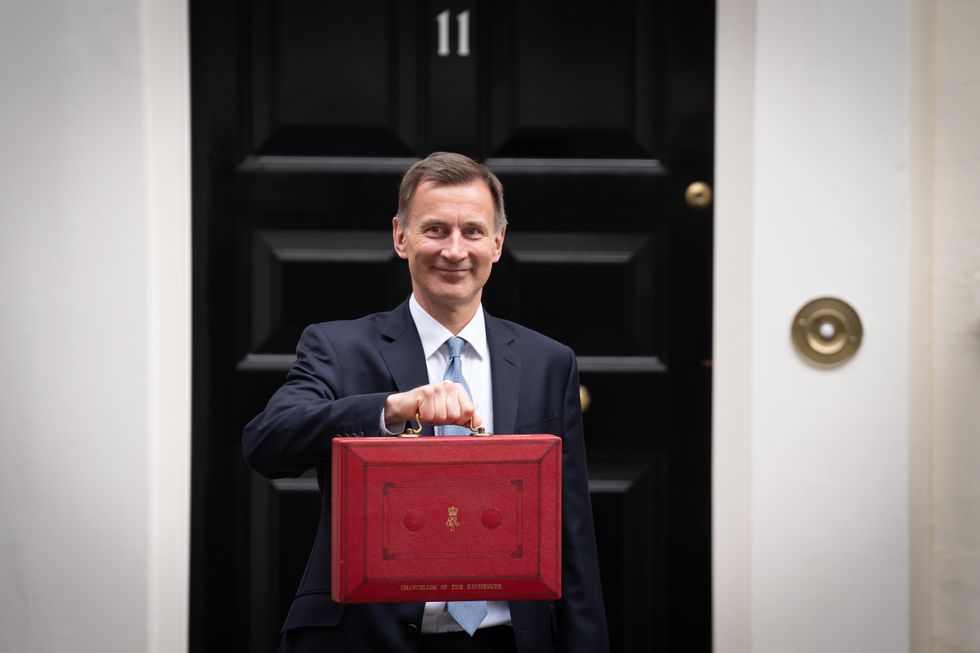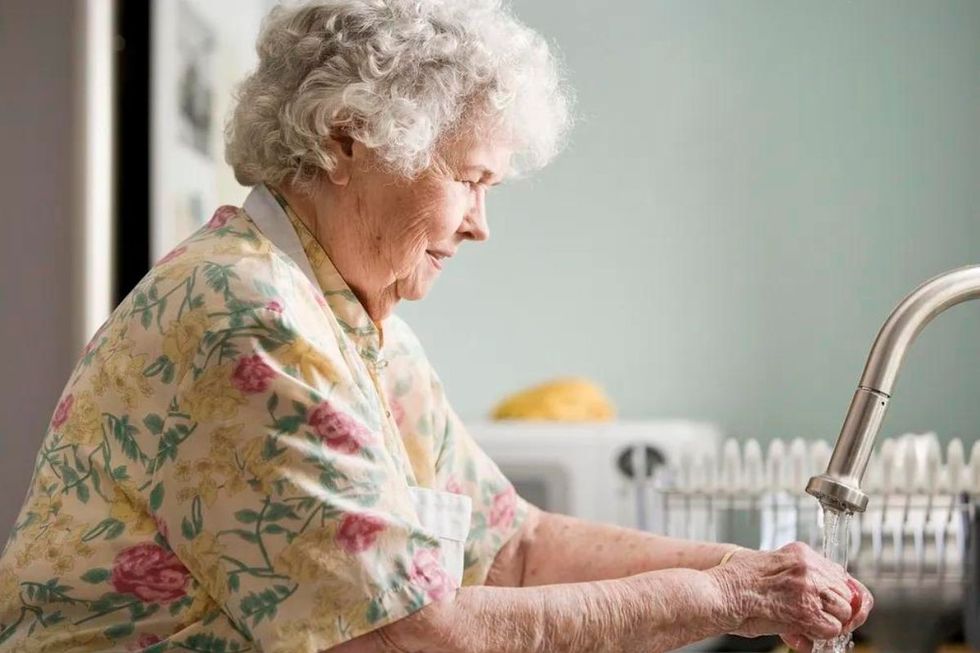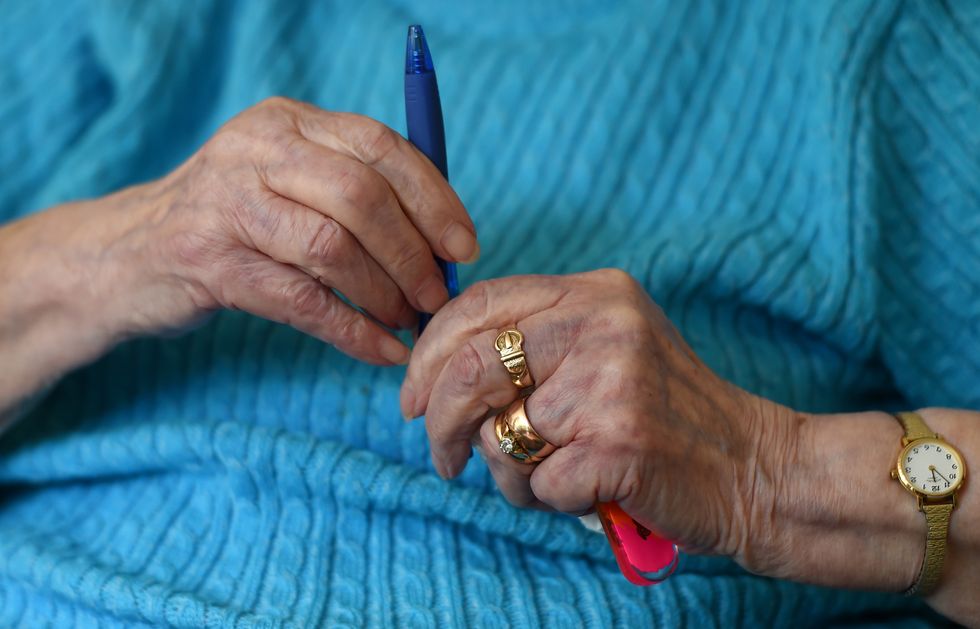
HMRC rakes in record £7billion in inheritance tax - how to reduce death levy
PA
Britons have six simple ways to avoid one of the UK's most controversial taxes
Don't Miss
Most Read
Trending on GB News
Inheritance tax raked in a record-breaking £7billion in the last financial year, figures released on Tuesday have revealed.
His Majesty’s Revenue & Customs (HMRC) raised more cash than previously forecast amid swelling estate values following rising house prices.
It comes after inheritance tax takings increased by £1billion compared to the 2021 to 2022 tax year.
Officials have claimed the increase comes as a result of rising asset values and the levy’s band rate 40 per cent on the value of the estate above £325,000.

Jeremy Hunt, who succeeded Kwasi Kwarteng as Chancellor after last autumn’s mini-budget, announced inheritance tax thresholds would be frozen until 2028
PAJeremy Hunt, who succeeded Kwasi Kwarteng as Chancellor after last autumn’s mini-budget, announced inheritance tax thresholds would be frozen until 2028.
The £325,000 rate has been in place since 2010 but Rishi Sunak is thought to be considering whether to cut inheritance tax ahead of the next general election.
A rapid rise in inflation in the UK, which stood at 10.1 per cent last month, has helped ensure more people’s estates surpass the inheritance tax threshold.
The Treasury said: “The vast majority of estates do not pay inheritance tax - more than 93 per cent of estates are forecast to have zero inheritance tax liability in the coming years.”
There are six simple ways for Britons to avoid a hefty inheritance tax bill
Tie the knot and give your assets to your spouse
Married couples can cut their inheritance tax bill by handing parts of their estates to one another.
Current rules around inheritance tax allow individuals to pass on assets of unlimited value to either a spouse or a civil partner.
Transfers between spouses and civil partners saved Britons a collective £2.6billion in inheritance tax in 2019 to 2020.
Inheritance tax rules were amended in 2007 to enable spouses to receive their partner’s unused nil-rate band when they die.
The allowance for the surviving spouse could therefore grow to £650,000.
A formal claim must be made to HMRC within two years of the death of the surviving spouse to complete the transfer.
It is otherwise possible your family could fit an unnecessary tax bill.

Many Brits hit by inheritance tax will face the levy as their property will be the most valuable part of their assets
PAGive your kids the keys to your home
Many Britons hit by inheritance tax will face the levy as their property will be the most valuable part of their assets.
House prices rose by 0.8 per cent month-on-month to £287,880 last month, a recent report by Halifax has revealed.
However, homeowners have access to an additional £175,000 residence nil-rate band allowance if their main property is passed on to family members.
Spouses and civil partners can consequently pass on a total of £1million without incurring a tax bill by combining allowances.
Ian Dyall, of wealth manager Evelyn Partners, said: “The property must be a residence of the deceased and it must be left to children or grandchildren (not nephews, nieces, brothers or sisters)."

Married couples can cut their inheritance tax bill by handing parts of their estates to one another
PA
Reduce your assets during your lifetime
The simplest way to avoid coughing up cash is to give away your assets over the course of your lifetime, including giving money out on surplus income.
The money handed over must not significantly alter your lifestyle.
For example, it cannot come from the sale of a house.
Chris Etherington, of tax firm RSM, said: “The gifts don’t need to be of equal size – they just need to be part of a pattern. You should also keep detailed records of the gifts made, in case HMRC asks for evidence of the gifts after death."
Brits are also eligible for an annual £3,000 exemption.
The annual exemption can also be carried forward for one tax year, enabling individuals to give away £6,000 if your previous year allowance is unused.
Additional allowances are in place for weddings and civil partnerships.
Parents can give a tax-free gift of £5,000, grandparents, great-grandparents and soon-to-be spouses are able to handover £2,500 and any other relation can gift £1,000.
The small gift allowance also allows individuals to give away up to £250 each year per person.
However, people who have benefitted from the £3,000 annual exemption are not covered by the small gift allowance.
 The Prime Minister is reportedly considering a cut to inheritance tax ahead of the next general electionPA
The Prime Minister is reportedly considering a cut to inheritance tax ahead of the next general electionPATake advantage of the seven-year inheritance tax rule
Gifts in excess of £3,000 can be made exempt of inheritance tax if the individual lives for seven-years after the payment is made.
The rate paid on large gifts decreases as Britons get closer and closer to the seven-year rule.
Gifts made within three years of death are taxed at 40 per cent.
The rate falls by eight per cent year-on-year until it hits zero.
However, an increasing number of taxpayers are falling short of reaching the seven-year rule.
A whopping £197million was charged on “potentially exempt transfers” in 2017 to 2018, up from £156million in the previous year.

An entire pension pot can be handed to beneficiaries inheritance tax-free
The state pension is rising todayPass your pension savings on to your beneficiaries
An entire pension pot can be handed to beneficiaries inheritance tax-free.
However, the beneficiary will be required to pay income tax as they draw down on the pension if the original holder dies after the age of 75.
An advantage of including pension pots in the value of an estate is that it enables Britons to still access these funds if you ever need cash to cover care.

An individual can pay inheritance tax by taking out a life insurance policy rather than asking beneficiaries to foot the bill
PA
Benefit from a life insurance policy
An individual can pay inheritance tax by taking out a life insurance policy rather than asking beneficiaries to foot the bill, The Telegraph has claimed.
However, to ensure your estate is shielded, you must place the policy inside a trust.
Failing to do so will increase the estate’s value and could lead to an even larger inheritance tax bill.
Taking out a life insurance policy could also be very expensive, particularly if it is taken out at an older age.








